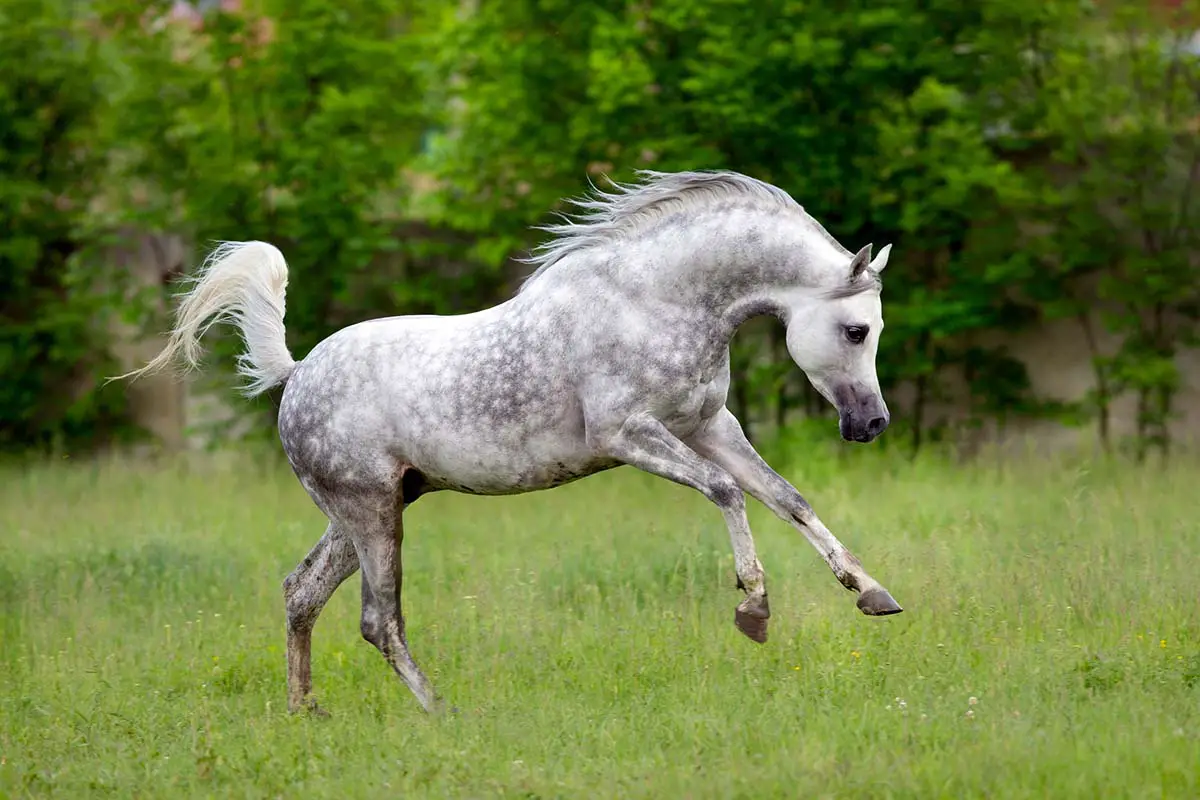
Arabian Horse Breed Profile History, Characteristics, and Care Guide
# **Arabian Horse Breed Profile: History, Characteristics, and Care Guide**
The Arabian horse is one of the most recognizable and cherished breeds in the world. Famous for its elegance, intelligence, and endurance, the Arabian has a rich history dating back thousands of years. Whether you’re a lifelong horse lover or just getting started, this guide will walk you through everything you need to know about this fascinating breed, including its origins, distinct features, and how to care for these majestic animals.
—
## **A Brief History of the Arabian Horse**
The Arabian horse breed traces its origins to the ancient deserts of the Middle East. Thought to be over **4,500 years old**, these horses were carefully bred by Bedouin tribes for their speed, endurance, and loyalty. Because they were such an important part of daily life, Arabians often lived alongside their owners, developing close bonds with humans.
Over time, Arabian horses spread across the globe, influencing many modern horse breeds. Their stamina and strength made them ideal war horses, and they played a crucial role in shaping breeds like the Thoroughbred, Andalusian, and Quarter Horse. Today, the Arabian remains a beloved breed, known for its versatility and beauty.
—
## **Why Arabian Horses Stand Out**
The Arabian is far more than just a beautiful horse. It has several unique traits that make it special:
### **1. Striking Appearance**
Arabians have a distinctive look that sets them apart from other breeds. Some key characteristics include:
– Dished Face: A concave shape that gives them an elegant appearance.
– Large, Expressive Eyes: Known for their intelligence and curiosity.
– Small, Refined Muzzle: Perfectly proportioned to their head.
– High Tail Carriage: A trait unique to this breed, giving them an air of elegance.
### **2. Exceptional Endurance**
If you’re looking for a breed that can go the extra mile—literally—Arabians are the gold standard. These horses were bred to survive harsh desert conditions, meaning they have:
– Strong Lungs & Efficient Respiration: Allowing them to travel long distances without tiring.
– Lean, Muscular Build: Designed for speed and endurance.
– Exceptional Stamina: It’s no surprise they dominate endurance riding competitions worldwide.
### **3. Intelligent & Trainable**
Arabian horses are considered one of the smartest equine breeds. They form deep bonds with their owners and are highly trainable due to their **strong memory and eagerness to please**. However, their intelligence also means they can get bored easily, so they need mental challenges to stay engaged.
—
## **Caring for an Arabian Horse**
Owning an Arabian is a rewarding experience, but it also comes with responsibilities. These active and intelligent horses need proper nutrition, regular exercise, and lots of interaction to thrive.
### **1. Diet & Nutrition**
A well-balanced diet is essential for keeping your Arabian healthy. Here are some key dietary needs:
– High-Quality Forage: Arabians do best with a hay-rich diet to support digestion.
– Protein & Vitamins: Supplement their diet with grains, minerals, and vitamins as needed.
– Plenty of Fresh Water: Because of their desert origins, Arabians are good at conserving water, but they still need constant access to clean drinking water.
### **2. Exercise & Training**
Arabian horses are naturally energetic and thrive on regular physical activity. Whether you’re riding them for pleasure or training them for competitions, they require:
– Daily Exercise: Light riding, lunging sessions, or pasture turnout help keep them fit.
– Varied Workouts: Mixing up trails, obstacle courses, and arena work prevents boredom.
– Positive Reinforcement: Arabians respond best to gentle, patient training techniques.
### **3. Grooming & Maintenance**
Keeping an Arabian looking its best requires consistent grooming. Helpful grooming tips include:
– Brushing Daily: To maintain their shiny coats and avoid skin issues.
– Hoof Care: Regular cleaning and farrier visits prevent hoof problems.
– Mane & Tail Maintenance: Arabians have long, flowing manes and tails that require special attention to prevent tangles.
—
## **Common Health Considerations**
Like all horse breeds, Arabians have specific health concerns to be aware of. Some common issues include:
– Colic: Monitoring their diet and feeding schedule helps prevent digestive problems.
– Laminitis: A painful hoof condition that can be avoided with proper diet and exercise.
– Genetic Disorders: Arabians are prone to certain inherited conditions, such as severe combined immunodeficiency (SCID). It’s always best to get a vet check before purchasing an Arabian horse.
—
## **Are Arabian Horses Right for You?**
Arabian horses are not just beautiful; they are intelligent, loyal, and versatile companions. But before deciding to bring one into your life, ask yourself:
– Do I have time for regular training and exercise?
– Am I prepared to provide quality nutrition and veterinary care?
– Do I have the experience to handle a spirited, intelligent breed?
If you’re looking for a horse that is both affectionate and athletic, the Arabian could be a perfect match. They excel in **endurance riding, dressage, show jumping, and even pleasure riding**, making them suitable for many equestrian activities.
—
## **Final Thoughts**
The Arabian horse has captivated humans for centuries with its beauty, intelligence, and unwavering loyalty. Whether you’re drawn to their rich history, distinctive appearance, or their incredible endurance, owning an Arabian is an unforgettable experience.
If you’re considering adopting an Arabian, take the time to understand their needs and ensure you’re ready for the commitment. With proper care and training, these horses will reward you with years of companionship, adventure, and admiration.
Want to learn more about different horse breeds and care tips? Keep exploring our blog for more expert advice on all things equine!









